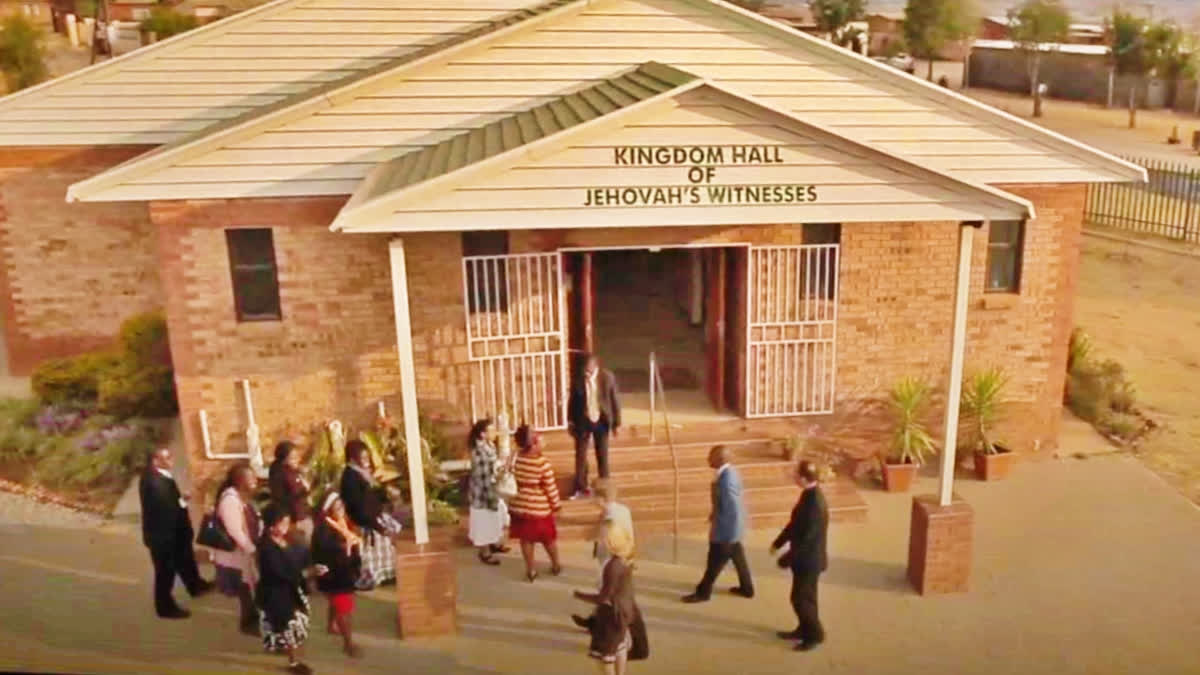Hyderabad:Multiple blasts Sunday rocked a convention centre in Kalamassery area of Ernakulam district in Kerala. Jehovah's Witnesses, a Christian religious group, had gathered at the centre for a prayer session.
The blasts left two dead and over 50 others injured including six who were critically wounded. Soon after the blasts, a man, who said he was a member of Jehovah's Witnesses, claimed responsibility for the blasts in a video he posted on Facebook. The man who identified himself as Dominic Martin surrendered before the police soon after.
In his video, Dominic termed Jehovah's Witnesses as "traitors who spread hatred among children". He also claimed that the group was against democracy and democratic systems.
Who are Jehovah's Witnesses
Jehovah's Witnesses are an international Christian group that follows beliefs different from mainstream Christianity. According to jw.org, the official website of the group, there are over 86 lakh Jehovah's Witnesses in the world.
Founded in 1876 by an American Bible scholar Charles Tays Russell, the neutral Bible study organization "Bible Students" later evolved into Jehovah's Witnesses. The group worships "one true and Almighty God, the Creator, whose name is Jehovah". While other Christian churches believe in the Trinity, Jehovah's Witnesses believe that Jesus is not God but God's agent.
They accept Jesus as the 'Son of God'. "We follow the teachings and example of Jesus Christ and honour him as our Savior and as the Son of God. Thus, we are Christians...However, we have learned from the Bible that Jesus is not Almighty God and that there is no Scriptural basis for the Trinity doctrine," reads the website explaining the belief system.
They believe that God's kingdom ruling from heaven will soon fulfil God's purpose on earth. Witnesses believe that after destroying all sinners, Jehovah will grant the righteous a life free from death, disease and old age. This group also believe that Jehovah will resurrect good people who have died. Crosses, idols or other symbols are not used in their worship.
Their faith is based only on the Bible. Although they accept the entire Bible, they are not fundamentalists. As per witnesses most parts of the Bible are written in figurative language or using symbols, and they do not take them literally. They are careful and insist on being politically neutral, not to salute the national flag, not to sing the national anthem, and not to perform military service. Due to this stance, their activities have led to legal battles and bans in many countries including the US.
Jehovah's Witnesses in Kerala
Those belonging to this religious group came to Kerala for evangelization in 1905. Rasalpuram is the place where early preacher TC Russell preached in Thiruvananthapuram district in 1911. It is estimated that there are more than 15,000 Jehovah's Witnesses in Kerala. Their early activities were in Mallapally, Meenadam, Pampadi, Vakathanam, Kangaza, Ayarkunnam and Puthupally.
At present there is a presence of Jehovah's Witnesses throughout the state. Conventions are held three times a year in many parts of Kerala and the gorup operates in more than 200 locations. Jehovah's Witnesses claim annual memorial attendance of over two million They do not celebrate Christmas, Easter or birthdays.
1986 National Anthem controversy
In 1986, the Jehovah's Witnesses in Kerala gained national attention with their legal victory in the much-discussed national anthem controversy. The three children of a college professor VJ Emmanuel and Lillikutty, of Kataplamattam near Pala, took a long legal battle up to the Supreme Court against their expulsion from the school over showing reluctance to sing the national anthem in school assembly.
Emmanuel's three children, Bijo, Binu Mol and Bindu, who were students at NSS High School in Kidangoor, were Jehovah believers. Like other children, they used to attend school assemblies regularly. However, these children were not ready to sing the national anthem during the assembly. They were willing to stand up as a sign of respect when the national anthem was played. They said that their religious beliefs do not allow them to sing the national anthem.
VC Kabir MLA who visited the school at that time came to know about the matter and raised it in the Kerala Legislative Assembly. TM Jacob, who was the education minister in the K Karunakaran government, appointed a single-member commission to investigate the incident. The committee found that the children were law-abiding and did not insult the national anthem. Including them, 11 children who were Jehovah believers were studying in Kidangoor NSS school at that time.
The Department of Education suggested that the children can continue their studies if they give written assurance that they can sing the National Anthem, but their father did not relent. However as the controversy grew, the school principal suspended the children from the school.
Immanuel filed a petition in the Kerala High Court on behalf of the children, alleging that the children were being denied education. A single bench and then a division bench of the High Court rejected the petition seeking to allow the children to continue in school. The children appealed to the Supreme Court and on August 11, 1986, the Supreme Court ruled in the case of Bijo Emmanuel vs. State of Kerala.
The verdict was to allow the children to continue their studies. Emmanuel's three children and nine other children who were Jehovah believers joined the Kidangoor school again. After attending school for just one day, Emmanuel's children bid farewell to formal education.
Also read: One dead, 52 injured in blasts at Kerala convention centre; CM calls it 'unfortunate'
